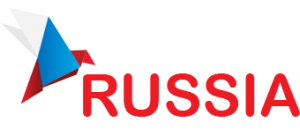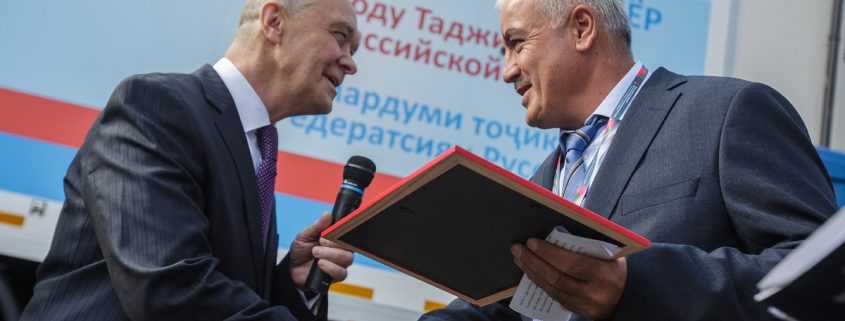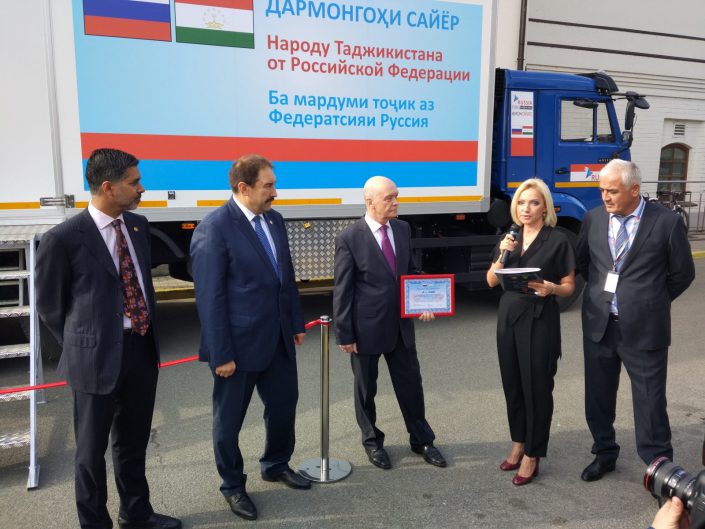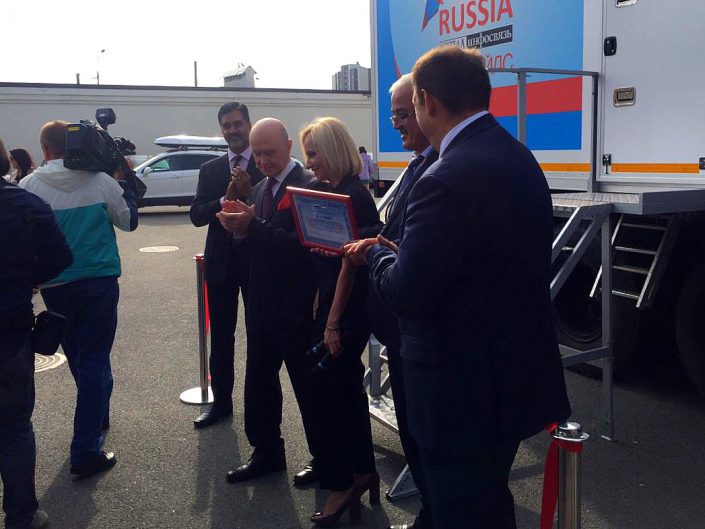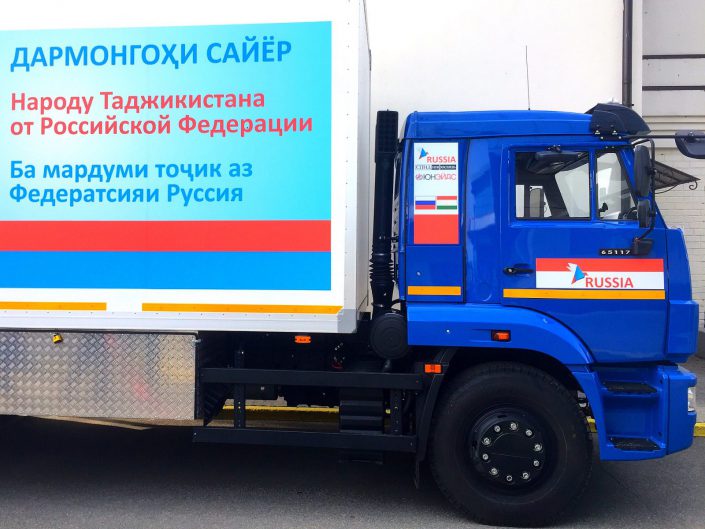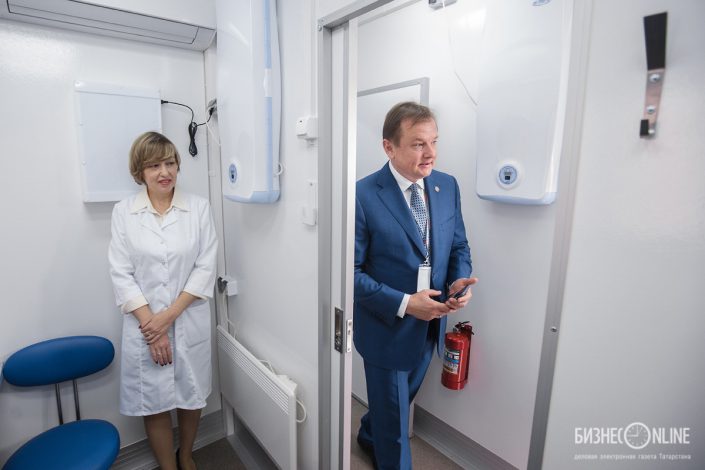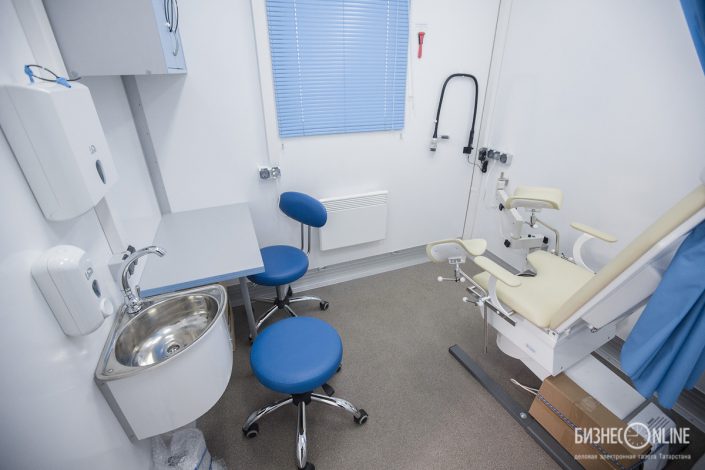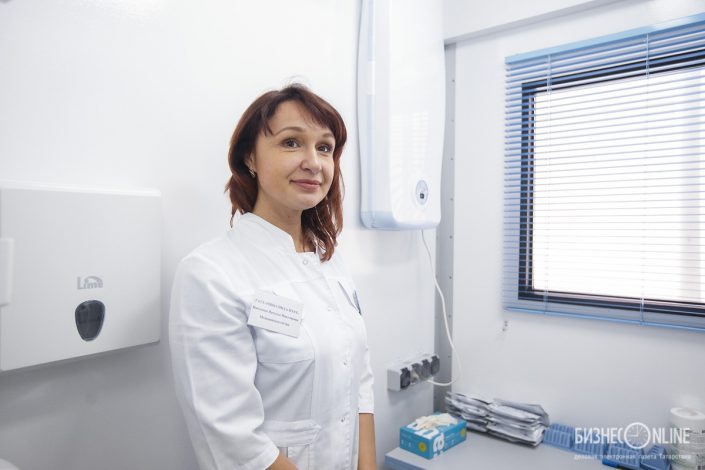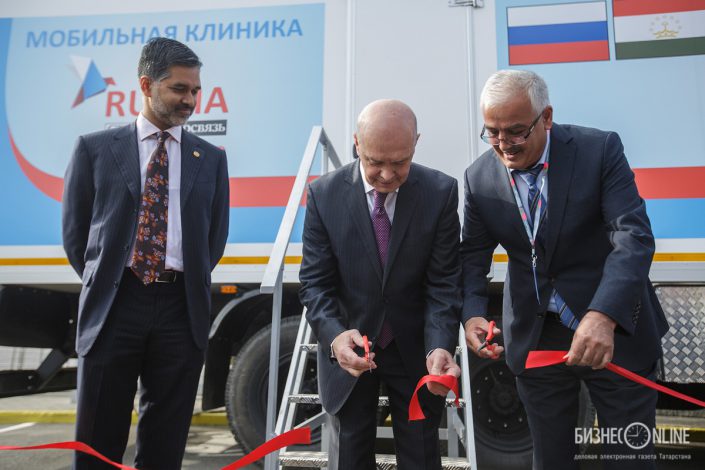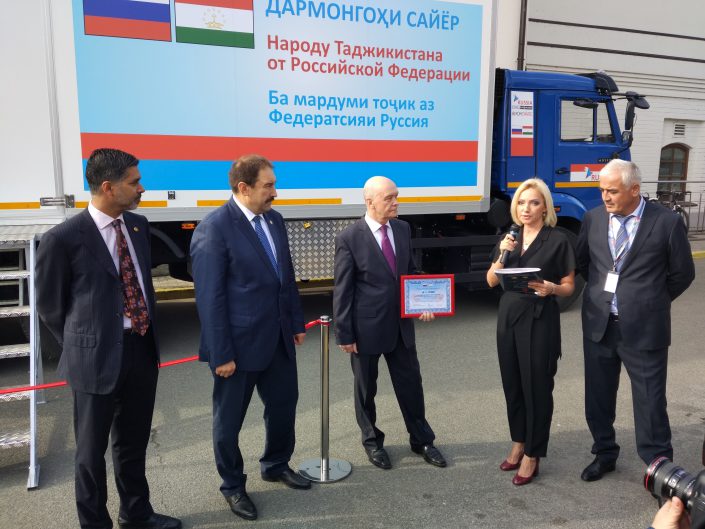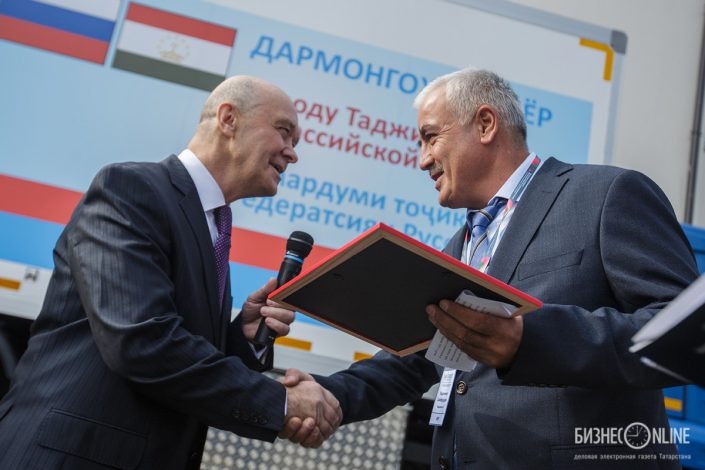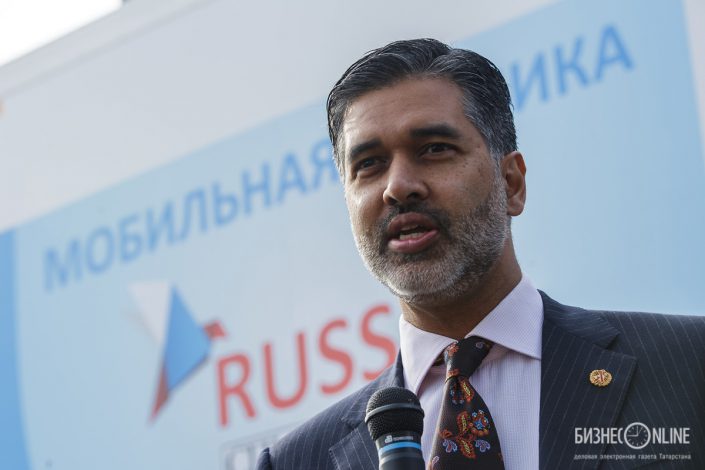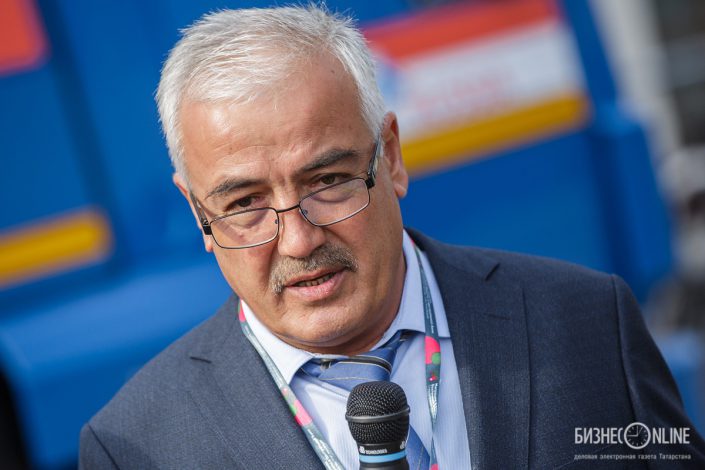The second mobile treatment and diagnostics unit has been handed on to the Republic of Tajikistan in Kazan
The Official Handover Ceremony of the mobile treatment and diagnostics unit from the Government of the Russian Federation to the Republic of Tajikistan took place on 26 September 2016 within the frame of the “Migration in Eastern Europe and Central Asia Countries: Contemporary Challenges, Experience and Innovations” International Science and Practice Conference. The mobile clinic will operate in thirteen regions of the Republic of Tajikistan.
Boris P. Kuz’kin, Deputy Head of the Consumers Rights Protection and Human Wellbeing Supervising Federal Service, Saifuddin S. Karimov, Director of the Republican AIDS Center of the Republic of Tajikistan, Alena Peryshkina, Head of AIDS Infoshare Foundation supporting prevention and combat with HIV and Vinay Saldanha, UNAIDS Regional Director for Eastern Europe and Central Asia have participated in the official ceremony.
The mobile clinic was handed on within the frame of the Russian Technical Assistance Programme to fight HIV.AIDS and other infectious diseases in Eastern Europe and Central Asia countries and will become the second one in Tajikistan. The Programme has operated in the Republic since 2013.Thanks to the project, material and technical resources of the republican districts were improved, thus allow to increase medical testing of the population considerably and to prescribe treatment to newly diagnosed patients timely.
“If existing close cooperation between our countries continues, we will be able to talk about the end of AIDS epidemic in the immediate future as well as about reaching the goals 90-90-90 set by the global community”,- said Saifuddin Karimov.
Boris P. Kuz’kin, Deputy Head of the Consumers Rights Protection and Human Wellbeing Supervising Federal Service in his turn emphasized that:
The Rospotrebnadzor and the Joint United Nations Programme on HIV/AIDS implements a set of actions to increase the potential of countries in the region. The number of services provided to migrants and their family members significantly increased during the Programme period. The services include voluntary resting and provision of information on prevention of infectious diseases. Use of KAMAZ-based mobile clinics allows to increase access to HIV testing and to other diagnostic measures for the population of rural, mountainous and remoted areas.
